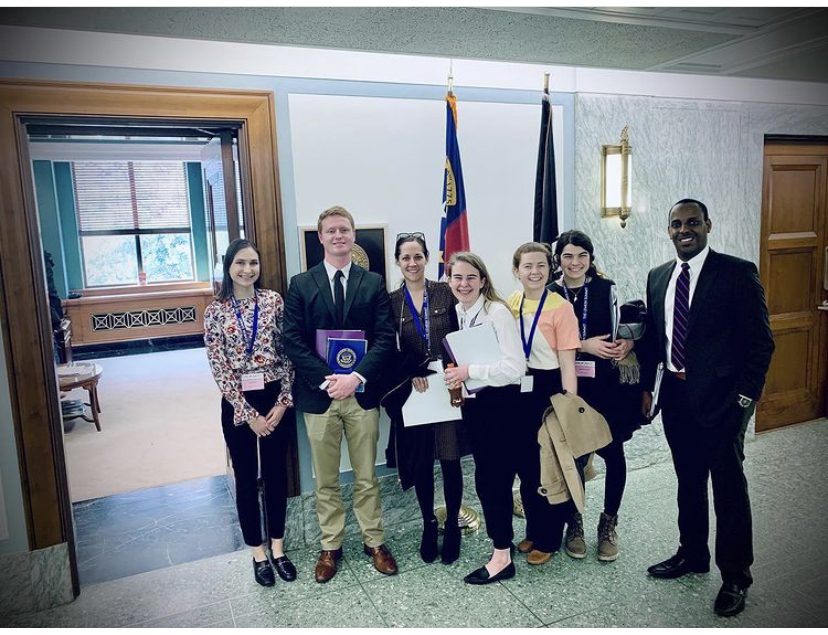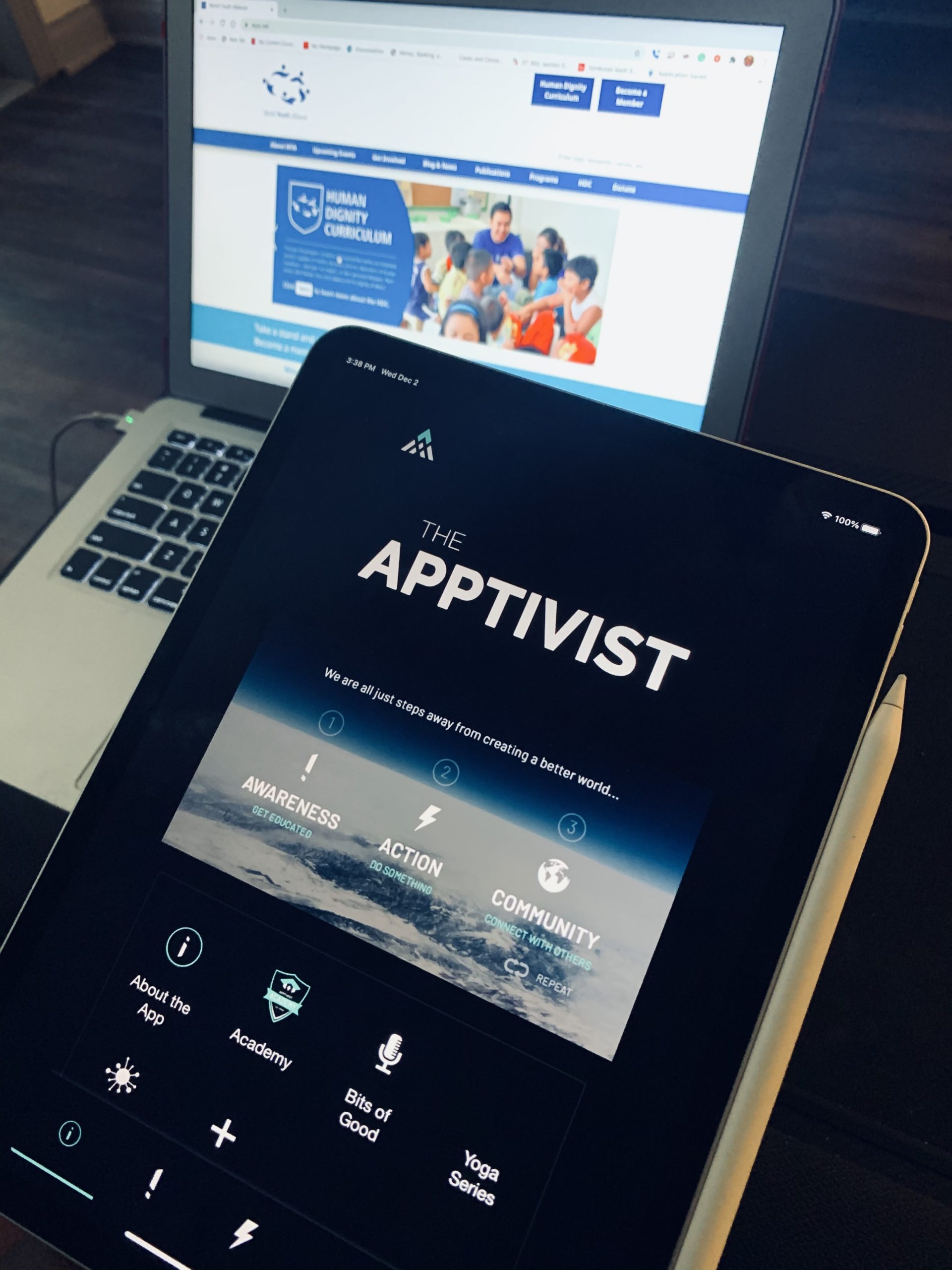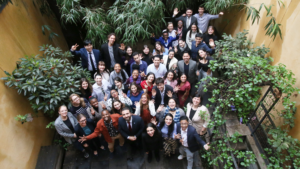As the 2020 presidential election approached, I searched around for a way I could contribute to American democracy. I was browsing the internet and working on a couple of homework assignments, all in the comfort of my own home office sitting in front of three computer monitors and a Mac. Suddenly, an ad talking about a job posting pops up in the far-right corner of one of the monitors. I click. I start to read. And boom, it was about political phone-banking and they are looking for someone who can work until the election day, November 3rd, 2020, to “get people to vote and make sure this election has the best turnout in history.” The powerhouse behind my contribution to the best voter turnout in the history of the United States’ presidential election is no other than a combination of digital technologies.

The digital age, otherwise referred to as the information age, is a historic period in the 21st century characterized by the introduction of personal computers and other subsequent technologies. This historical period has ushered in many great changes and disruptions. For example, many countries are able to conduct democratic elections using electronic voting machines and electoral candidates are able to run campaigns without necessarily being on campaign trails from city to city to talk to people and hold rallies with thousands in attendance. With all these amazing changes we have seen over the last couple of decades, both democracies and dictatorships around the world have been impacted in many ways.
For years, democracies have experienced the heat coming from the digital generation. Not only have these powerful countries experienced the positive wave of this transformational technological blessing, but they have also worn the brunt of the devastation that came along with it. From the facilitation of radicalism and terrorism to the mishaps resulting from scientific trials by scientists testing the new tools on humans and the environment, this transformational blessing has proven to be both beneficial and fatal.
Social media has facilitated freedom of association and amplified the freedom of expression and opinion while at the same time giving more power to the most powerful leaders to tighten the chains of control and oppression on the necks of their followers and the oppressed. On a macro-level, a good example is when powerful countries deploy massive digital resources to fight other countries or spy on other countries that do not have these capabilities. If you are picturing the current cyberwar between powerful countries such as the US and China, you are not wrong.

As an active WYA member, this makes me think about the Dalai Lama’s writings about “Our Global Family” through which he firmly stated that “In the struggle between force of war, violence and oppression on the one hand, and peace, reason and freedom on the other, the latter are gaining the upper hand.” Indeed, the digital age has brought many communities closer to peace, reason and freedom, and has made war, violence and oppression more and more avoidable.
Even though democracy is more of a process than a finished product, where full participation of and support by the people prevail, the hopes of a fully democratic society, in developed countries, are also at risk. While I believe institutional changes currently occurring around the world are more of a function of both power and money than mere happenstance, the power of digital technology and media in driving this function forward should not be neglected.
While digital media has increased the power of activists and civil society leaders to influence governments, internet giants behind these innovations have reigned unopposed in influencing business, social, and political decisions about surveillance and censorship. Corporations, enabled by technological advancements in this sector, have increased power over employees and customers, more now than ever before. All of this has had both positive and negative impacts on our aspiring global democratic society and our ability to fight dictatorships.
Activist groups and civil society leaders have forced fundamental change and paved a way towards democratic rule in many developing and least developed countries around the world. A number of cases are worth mentioning when it comes to freedom of association that has been proven to be led by digital media over the last two decades, one of them being the “One Million Voices Against FARC” in Colombia.
In countries under dictatorial regimes, online communities have caused conflicts between their members and local dictatorial governments. These conflicts have, in many cases, escalated and led to arrests and violence. Around the world, dictatorships have proven to have the power to impose broad Internet restrictions, in response to anti-government protests, such as blocking all access to Twitter, Facebook, Google, and online discussions deemed subversive by authorities. This was seen during the Arab Spring of the early 2010s, and more recently during protests in a number of Southeast Asian countries and around Africa.
During the time I was hired to do political phone-banking, the digital guy in me came out. It was through chatting with my supervisors and co-workers on Slack, using an App-based phone service, that allowed me to dial numbers without interruption to reach out to potential voters, getting news updates using different social media services such as Facebook live stream, and much more. Every move, every click, every dial, and every word I used had something to do with the power of digital technology and the fact that I am a member of this digital generation.
A more democratic world we hope for will come through our collective work. Dictatorship has no place in the world of good governance. We must remind ourselves that “The basis of good governance lies in the responsibility of every person to protect the human dignity of all and actively work in solidarity for the common good. (WYA Declaration on Good Governance and Human Flourishing)” At the end of the day, the State’s disposition on who the person is will dictate how they want to use these tools. They should be used to advance the respect for human dignity and to live in truth, integrity, and solidarity. With this in mind and in action, peace, reason, and freedom will lead us, as a digital generation, to full human flourishing. We shall overcome war, violence, and oppression.
[su_divider top=”no” size=”1″ margin=”10″]
Published on: December 11, 2020
Written by: Patrick Sabineza, a WYA Headquarters Online Intern







